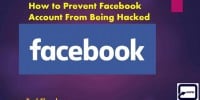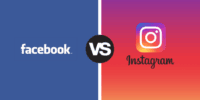Facebook Event Vs. Facebook Group: Selecting The Ideal Platform For Event Promotion
Social media platforms, notably Facebook, have become indispensable tools for event promotion. Facebook offers two distinct structures, namely Facebook Events and Facebook Groups, which can be leveraged for this purpose.
However, the choice between these two options often poses a challenge for event organizers. This article aims to elucidate the fundamental differences between Facebook Events and Facebook Groups, their respective advantages and disadvantages, and the specific features of each that can be harnessed for successful event promotion. It will also present real-life case studies to illustrate the effective use of both platforms.
Lastly, the article will provide guidance for making an informed decision on the most suitable platform for different event promotion scenarios and offer best practices for maximizing the potential of Facebook as an event promotional tool. Through this discussion, the article strives to enable event organizers to strategically utilize Facebook’s features for optimal event promotion.
Understanding the Basics: Events vs. Groups
To effectively promote an event on Facebook, it is crucial to discern the fundamental differences and respective benefits of utilizing Facebook events versus Facebook groups.
Facebook events are primarily designed for organizing gatherings, allowing for the dissemination of information about the event, such as date, time, location, and description. It serves as a platform for potential attendees to confirm their attendance, invite others, and engage in discussions about the event.
On the contrary, Facebook groups are designed for ongoing interaction and discussion among members, creating a space for a community with shared interests. While it can be used for event promotion, its primary focus extends beyond single events, fostering continuous engagement and interaction.
Thus, the selection between the two depends largely on the nature and timeline of the event.
Advantages and Disadvantages of Facebook Events
Harnessing the power of social media platforms for event marketing offers both rewarding advantages and challenging disadvantages. Facebook Events, as a promotional tool, is no exception.
Among the primary benefits is its ability to reach a wide audience. Creating a Facebook event allows for easy sharing of event details and updates, potentially reaching thousands of users with just a few clicks. Furthermore, event organizers can gather insights into prospective attendees through the platform’s RSVP system.
However, these advantages come with some drawbacks. The overabundance of events on the platform may lead to user fatigue, reducing the effectiveness of promotion. Additionally, the reliance on digital promotion can exclude potential attendees who are less digitally inclined or who prefer more traditional methods of event discovery.
Advantages and Disadvantages of Facebook Groups
Exploring the realm of online communities, one encounters the dynamic tool that is Facebook Groups, a feature laden with both significant advantages and potential pitfalls.
The primary strength of Facebook Groups lies in its capacity to foster ongoing discussions and engagement, making it an ideal platform for long-term event promotion. It provides a centralized place for members to share updates, ask questions, and build relationships. Moreover, the group’s privacy settings allow for control over audience, enhancing targeted marketing efforts.
On the downside, managing a Facebook Group requires considerable time and effort. It necessitates regular monitoring to ensure appropriate content and maintain member engagement. Furthermore, the lack of RSVP feature makes it challenging to gauge event attendance accurately.
Thus, while Facebook Groups present valuable opportunities for event promotion, they also pose certain challenges.
Comparing the Features: Events vs. Groups
A comparative analysis of the features offered by different online community tools can reveal strengths and weaknesses that may not be immediately apparent, providing valuable insights for those looking to leverage these platforms for extended engagement and promotion.
Facebook Groups, for instance, are designed for long-term interactions, facilitating ongoing discussions and community building. They provide tools for member management, content moderation, and group analytics.
Facebook Events, on the other hand, are optimal for promoting specific occasions. They allow for event scheduling, RSVP tracking, and direct communication with attendees. However, they lack the robust community engagement tools present in Groups.
While both platforms offer unique advantages, the choice between them should be guided by the specific promotional needs and desired engagement level.
Case Study: Successful Event Promotions Using Events
Delving into real-world instances, one can see how successful event promotions have been executed using event-focused online tools, painting a vivid picture of their potential when strategically employed.
For instance, a non-profit organization utilized Facebook Events to promote its annual fundraising gala. The event page served as a hub for information, updates, and discussions, fostering a sense of community among attendees before the actual event. Beyond that, the ‘Invite’ feature allowed for targeted outreach to potential attendees, significantly increasing the visibility of the event. As a result, the organization witnessed a 35% increase in attendance compared to previous years.
This case study illustrates the utility of Facebook Events in facilitating effective promotion, attendee engagement, and ultimately, event success.
Case Study: Successful Event Promotions Using Groups
Illustrating the efficacy of online communities in event promotions, a case study of a music festival provides insight into the strategic use of groups for this purpose.
The organizers created a Facebook group, where they shared content related to the festival, including artist profiles, playlists, and behind-the-scenes updates.
This interactive platform fostered a sense of community among attendees and potential attendees, who were encouraged to engage with the content and with each other.
The group’s discussions and shared content also generated excitement for the festival, thereby promoting ticket sales.
The results included a sold-out event and a highly engaged online community, demonstrating the potential of Facebook groups as a tool for successful event promotion.
Making the Right Choice: Factors to Consider
Building from the previous discourse on successful event promotions through Facebook groups, it becomes necessary to deliberate on the factors that should guide the choice between Facebook events and groups for event promotion. This selection process is not arbitrary but should be guided by certain parameters.
| Factors | Description |
|---|---|
| Target Audience | Understanding the demographic and psychographic profile of the target audience can guide the platform choice. |
| Nature of Event | The characteristics of the event, whether it is a one-time event or a recurring one, can influence the platform selection. |
| Engagement Level | The desired level of interaction with the audience, and the need for continuous engagement may necessitate the choice of a group or an event. |
Bearing these factors in mind can assist in selecting the most effective platform for event promotion.
Best Practices for Promoting Your Event on Facebook
Transitioning into the realm of effective promotional strategies, it is essential to examine the best practices for amplifying the visibility and reach of your occasion on popular social media platforms.
The key lies in optimizing the use of both Facebook groups and Facebook events. For events, creating an engaging, visually appealing event page, coupled with the strategic use of event-specific hashtags, can attract potential attendees. Regular updates about the event, including speaker introductions or agenda highlights, can sustain interest.
For groups, fostering active discussions related to the event theme, sharing exclusive content, and encouraging user-generated content can create a sense of community around the event. Both platforms, when utilized appropriately, can significantly augment the reach and effectiveness of event promotional efforts.
Frequently Asked Questions
What are some alternatives to Facebook for event promotion?
Alternatives to Facebook for event promotion include platforms like Eventbrite, Meetup, Instagram, LinkedIn, Twitter, and Snapchat. These offer varied audience demographics and unique promotional tools, potentially enhancing event visibility and participant engagement.
How can I integrate my Facebook event or group promotion with other social media platforms?
Integrating Facebook event or group promotion with other social media platforms can be achieved through cross-promotion. This involves sharing event or group details on platforms like Twitter, Instagram, and LinkedIn to reach a wider audience.
Can I use both Facebook events and groups simultaneously for promoting the same event?
Yes, simultaneous utilization of Facebook Events and Groups for promoting a singular event is possible. This strategy may enhance visibility and engagement, as each platform offers distinct features conducive to effective event promotion.
Are there any specific industries or types of events that benefit more from using Facebook groups over events, or vice versa?
Certain industries or event types may find more advantage in using Facebook Groups over Events. For instance, ongoing community events or networking groups often benefit more from Groups’ interactive and continuous communication features. Conversely, one-time or infrequent events typically utilize Facebook Events for its precise scheduling and RSVP tracking capabilities.
How do I measure the success of my event promotion on Facebook?
Measuring the success of event promotion on Facebook involves analyzing various metrics, such as event page visits, the number of interested and confirmed attendees, engagement on promotional posts, and actual event attendance.







